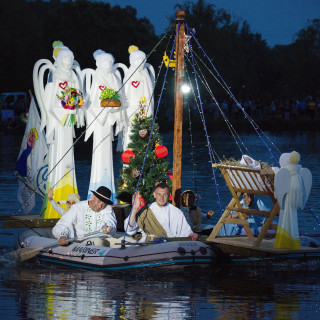
Andy’s Wordshop
There's a useful lull (break, quiet time, intermission) between the interminable tennis tournaments right now, just enough for the cycle race called "le Critérium du Dauphiné", a kind of week-long prelude (predohra) for "le Tour de France", with many big names taking part and a couple of guaranteed huge stages in the French Alps. The Dauphiné /dófínéé/ is the area of France between the Rhône Valley and Italy, or that part of the French Alps which is west of Savoie /savúa/. The Dauphin /dófa/ was the official title of the prince who was first in line for the French throne. The word actually means 'dolphin' (delfín), because the original prince had two dolphins on his coat of arms. The cycle race used to be called "le Dauphiné Libre" (Free), but that was deemed politically provocative, so it was dropped.
Tricky Words in this week‘s OVI
Cause. This word is an excellent example of the need to learn foreign language vocabulary (slovná zásoba = in your head, not in a book) on a two-to-one basis, by which I mean that it's necessary to learn a minimum of two English translations for each Slovak word, and vice versa. It's important to know that 'the cause' means 'príčina', so that you can talk about cause and effect, but also that 'to cause' means 'zapríčiniť' or 'spôsobiť', so you can cause something to happen, or cause somebody to do something. But it's also necessary to know that 'cause' means 'vec' in the sense of 'pre dobrú vec', to do something for a good cause, or donate to a worthy (hodnej) cause. In legal language this word changes into 'case' (prípad, vec) with expressions like 'the case for the defence' = argument.











